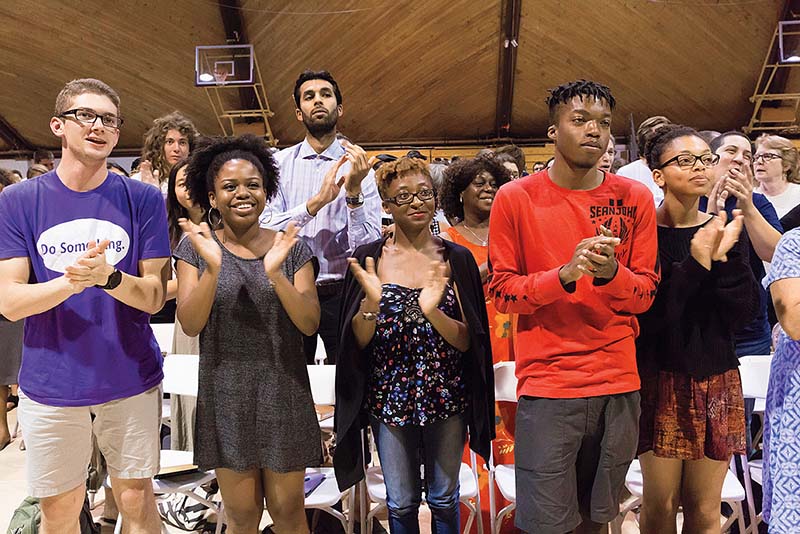Coates contrasted that moment, and the fear that his and other families felt in their neighborhood, to the idealized version of the white experience he saw on TV, as represented in shows such asMr. Belvedere.
“Why didn’t I know any families like that?” Coates asked of those fictional households. “That’s been the great mission of my life: the constant exploration of thatwhy.”
The American Dream, he said, is a dream of privilege and abundance with roots stretching back through the origins of slavery. Since the 1600s, he said, there has been a slow legal separation between the white and black experiences, a “cleaving away,” that helped create a “definitive working class that could always be depended on.”
In reframing the American dream, and in describing slavery as an economic institution—and the reasons why so many people would continue to fight for slavery in the Civil War and beyond—Coates drew an analogy: “The dream of slave ownership is not so different from the dream of home ownership,” he said. “Many people in this country do not own homes. And yet, if they felt that the government was going to take everyone’s home and liquidate the wealth, and they could be restricted from ever owning a home again, they might fight for that.”
A legacy of aspirations built on oppression continued through the Jim Crow era and created “racism implicit even in the best efforts,” he said. The GI Bill is one example: Widely considered a great piece of legislation, it required that veterans seek approval from local officials to reap its benefits—a nearly impossible prospect for African-Americans in some areas of the South.
The United States tends to believe in its own exceptionalism, he said. “There’s no America without slavery. This was not a mistake we made while walking somewhere else. This was the somewhere else we were walking to.”

